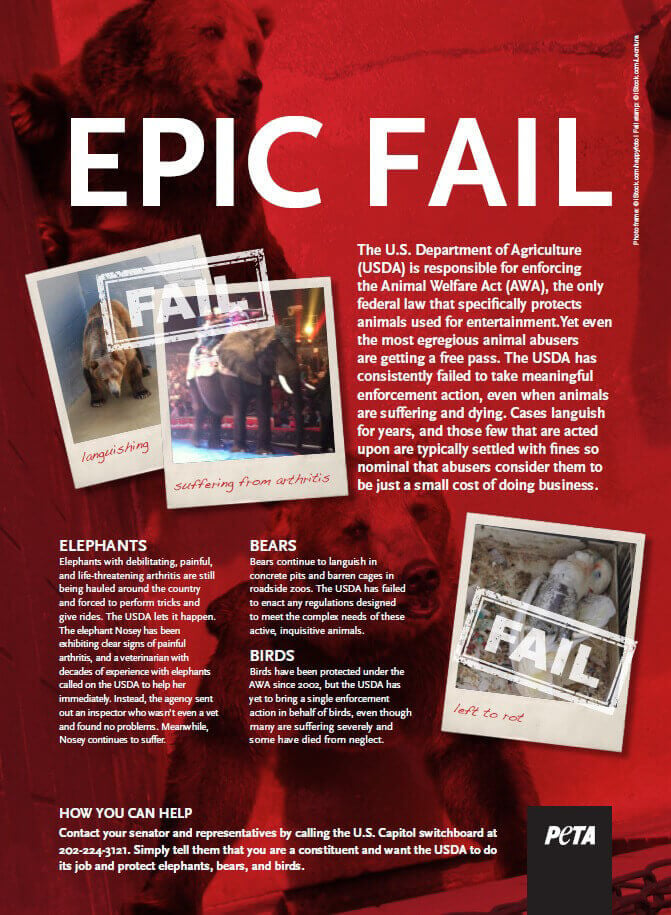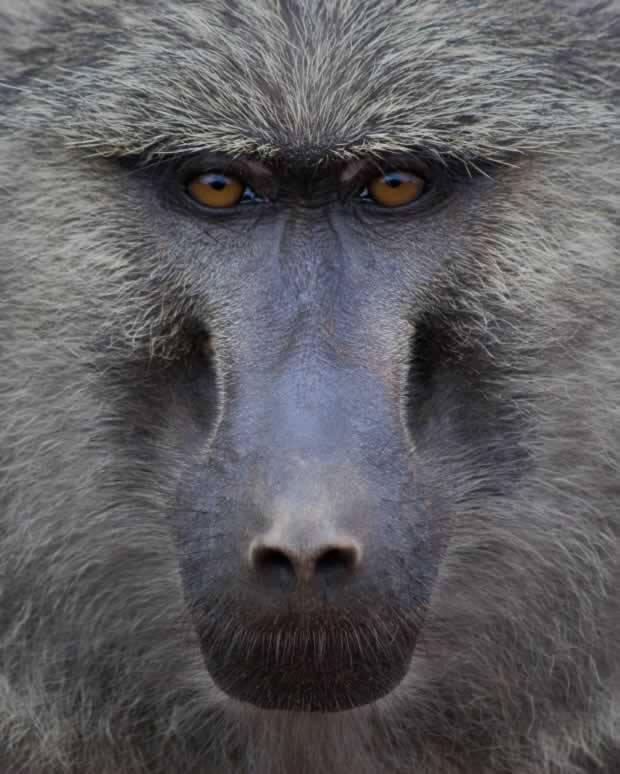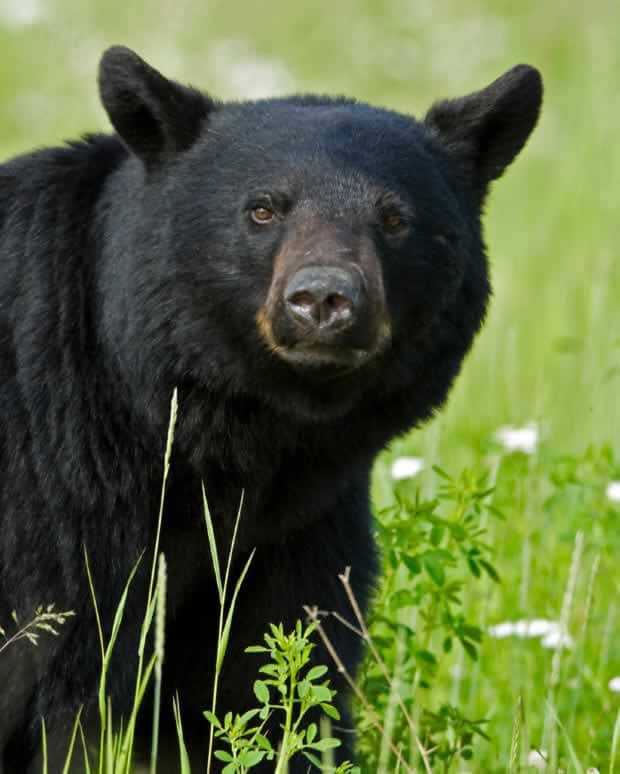Roadside Zoos Are Epically Failing Animals
Published by .
4 min read
The PETA Foundation’s Captive Animal Law Enforcement (CALE) division is demanding action for animals who are in trouble:
- CALE has asked the U.S. Fish & Wildlife Service (FWS) to put the brakes on the captive-breeding permit currently up for renewal by a notorious Arkansas outfit called Wild Wilderness Drive-Through Safari. The U.S. Department of Agriculture (USDA) has repeatedly cited this facility for violations of federal animal-protection laws, including failing to supply veterinary care to a baboon with an untreated lesion on his scrotum, another baboon who chewed off part of his tail while a USDA inspector was present, and a spider monkey who lost the tips of his toes, apparently to frostbite. In 2013, a 7-month-old lion was found dead, apparently from being strangled by a collar.
- CALE also objected to a captive-bred wildlife permit application submitted by Tim Stark—owner of a roadside zoo called Wildlife in Need—after Stark admitted that multiple animals at his facility have died of apparently preventable causes in the last five years. The deaths include a black bear who was killed by another bear, a bear who was euthanized because of “incompatibility” with other bears, endangered lemurs who died because of a malfunctioning heater, and two more endangered lemurs who died because of “sudden fights.” CALE also asked the USDA to investigate whether the deaths violate the federal Animal Welfare Act (AWA).
- CALE, along with Animal Defenders International (ADI), is challenging an application of the FWS’ overly narrow definition of “commercial activity” under the Endangered Species Act (ESA). Under the act, it’s illegal to transport a regulated animal in the course of commercial activity between states or internationally. This means that every time Ringling Bros. or another circus hauls animals from one country to another—like it did when it took them to Mexico every year until that country banned wild animals in circuses—or from one state to another, it should need a permit and be required to show that its activities are furthering the propagation of the species in the wild. Of course, carting chained animals from city to city to perform stupid, cruel, and unnatural tricks doesn’t do that. But the agency’s current definition of commercial activity is limited to sales of regulated animals, excluding obviously commercial activities like circus performances. The FWS has applied this definition to authorize Ringling to export elephants without complying with the strict permitting requirements of the ESA. CALE and ADI have just finished briefing their appeal to this authorization.
- Since 2006, the USDA has cited Alabama’s Mobile Zoo for at least 114 AWA violations. In fact, every single regular USDA inspection of the roadside zoo since 2006 has found violations, and CALE has repeatedly filed complaints about this hellhole. The USDA has finally filed a formal complaint against the decrepit facility for its long-standing animal-welfare and public-safety violations. The 14-page complaint notes multiple failures to provide animals with veterinary care, clean shelter, and safe enclosures and further states that John Hightower, who operates the facility, “has threatened to shoot animals rather than to provide them with veterinary care, and has made veiled threats to USDA personnel.” This complaint is the first step in a disciplinary process that could result in a fine of up to $10,000 per violation and/or in suspension or revocation of his license.
- Exotic animals got a helping hand from the Santa Monica City Council when it voted to ban exotic and wild animals from places frequented by the public—like the city’s famous pier. As CALE’s veterinarian, Dr. Heather Rally, pointed out when she spoke to council members, most of the animals exhibited are birds and reptiles, who suffer tremendously in captivity and are denied even the basic protections of the AWA.
- On the circus front, during a UniverSoul Circus performance in Atlanta in February, a Fulton County animal control officer saw the elephant handler, Larry Carden, insert the sharp end of a bullhook into an elephant’s mouth, in apparent violation of Atlanta’s cruelty-to-animals law. With CALE’s assistance, the police cited both Carden and a UniverSoul Circus representative with cruelty to animals. A trial date has been set for April 24. Other witnesses reported that during the same performance, an elephant named Bo missed a stunt in his circus routine and then appeared terrified to go backstage, remaining onstage for nearly an hour. Elephants who make mistakes during circus performances may be beaten backstage as punishment, so Bo may have feared going backstage to face a beating for missing the stunt.
CALE is always juggling multiple cases, so check back for more news.





